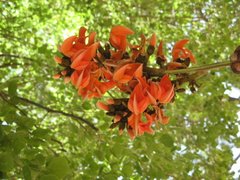I would like greet the panel, and on behalf of the Bolivian peoples, I want to say that I am pleased that there is such a great gathering to debate global warming and climate change.
Today in our discussions, we must be very sincere and very realistic about the problems faced by our peoples, humanity and the entire planet.
I feel that we are not speaking truthfully if we talk about life and the future of humanity, while each day we are destroying the future of humanity. It is important to pinpoint who our enemies are, what the causes are of the damage being done to the planet, damage that may put an end to humanity.
I’d like to sincerely apologize if some countries or some groups are affected by the survival of my country, the survival of the indigenous people. I think that that capitalism is the worst enemy of humanity and if we do not change the model, change the system, then our presence, our debate, our exchange, and the proposals that we make in these meetings at the United Nations will be totally in vain.
Capitalism has twins, the market and war. The market converts life into commodities, it converts land into a commodity. And when capitalists cannot sustain this economic model based on looting, on exploitation, on marginalisation, on exclusion and, above all, on the accumulation of capital, they rely on war, the arms race. If we ask ourselves how much money is spent on the arms race — we are never concerned about that.
This is why I feel that it is important to change economic models, development models, and economic systems, particularly those in the western world. And if we do not understand and thoroughly discuss the very survival of our peoples, then we certainly not will not be addressing the problem of climate change, the problem of life, the problem for humanity.
It is important that we learn lessons from some sectors, from some regions. Let me avail myself of this opportunity: I come from a culture based on peace, from a lifestyle based on equality, of living not only in solidarity with all people, but also living in harmony with Mother Earth. For the indigenous movement, land cannot be a commodity; it is a mother that gives us life, so how could we convert it into a commodity as the western model does?
This is a profound lesson which we must learn in order to resolve the problems of humanity that are being discussed here, climate change and pollution. Where does this pollution come from? It comes from, and is generated by, the unsustainable development of a system which destroys the planet: in other words, capitalism.
I want to use this opportunity to call on sectors, groups and nations to abandon luxury, to abandon over-consumption, to think not only about money but about life, to not only think about accumulating capital but to think in wider terms about humanity. Only then can we begin to solve the root causes of these problems facing humanity.
Because if we don’t think that way, if we do not change, it won’t matter if business owners have a lot of money, no matter if they are a multinational or even a country — no one can escape these ecological problems, environment problems, and climate change. No one will be spared, and the wealth that some country, some region or some capitalist may have will be useless.
I feel that it is important to organise an international movement to deal with the environment, a movement that will be above institutions, businesses and countries that just talk about commerce, that only think about accumulating capital. We have to organize a movement that will defend life, defend humanity, and save the earth.
I think that it is important to think about some regions, some sectors and some countries repaying what has often been called the ecological debt.
If we do not think about how this ecological debt will be paid, how are we going to solve the problems of life and humanity?
I want to say, dear colleagues and friends, that we must assume the responsibility as leaders or as presidents, as governments — we must save life, we must save humanity, we must save the entire planet.
Thank you very much.
By Evo Morales
(Speech by Bolivian President Evo Morales Ayma during the United Nations meeting on Climate Change, New York, September 24, 2007)
Friday, 5 October 2007
Subscribe to:
Post Comments (Atom)


No comments:
Post a Comment